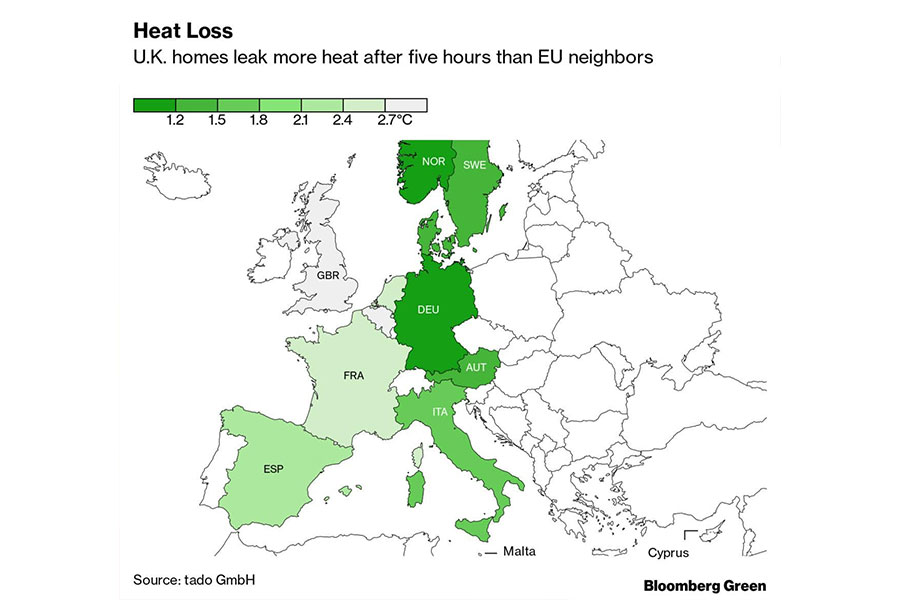You’ve probably noticed that your home energy bills have been higher this Winter than in previous years.
Soaring natural gas prices have fuelled a spike in energy prices that, alongside a more general cost of living crisis, has been front-page news and is impacting millions of families across the country. Some of the responses to this have made headlines themselves – some energy companies have collapsed, whilst others have been forced to apologise for misguided “advice” on how people can lower their bills – extra socks, cuddling the cat, and practising the hula hoop amongst them!

Whilst the idea of the nation hula hooping in front of Coronation Street might be worth a chuckle, the truth is that this is a serious problem, and one which can only be solved with decisive action – much more so than sticking on a jumper. Fuel poverty and the UK’s “energy efficiency gap” means that this crisis is also a very unequal one – certain areas and householder are affected much more by this. How efficient buildings are at keeping the heat in determines how much of a financial burden people will have to bear.
The truth is, due to the variance in the quality of buildings in the UK, some homeowners may be sitting in t-shirts whilst others are still struggling even with the heating on full blast. Much of this difference comes to proper insulation that keeps the heat inside, a feature that’s standard in new buildings but absent from older housing stock that hasn’t undergone renovations.
Bloomberg Green found that one of their London properties used 3 times more energy to stay warm than another which was just 10 miles down the road. This is a typical disparity in Britain. About 60% of homes have low energy efficiency ratings, according to the Office for National Statistics.
The UK is one of the worst countries in Europe when it comes to this, with temperatures in British houses typically dropping about 3° Celsius after five hours according to smart thermostat company tado GmbH. In Germany, the drop was only 1°C over the same time.
Not only is this statistic particularly damning for energy prices, but also for the UK’s goals of becoming carbon net-zero. In the U.K., 17% of all carbon pollution comes from buildings. The government aims to cut that amount by switching heating away from gas in the coming decades, but that won’t keep energy from going to waste. Even if heat comes from electricity sourced from wind farms, if it simply leaks through the walls and roof, then it’s still a waste of electricity that could be used elsewhere.
So far, the U.K. has struggled to make home heating more efficient. A government program rolled out during the pandemic that was meant to make as many as 600,000 homes more efficient reached only 8% of that target before it was shut down early.
This is particularly frustrating, as energy efficiency measures, such as home insulation are absolutely key to saving this problem, lowering energy bills, and cutting carbon emissions too. Colm Britchfield, a researcher with environmental think tank E3G backed this up, saying “With energy bills expected to stay high for a few years, insulation upgrades to cavity walls, lofts, roofs and floors could bring returns much more quickly.”
Here at Westville we have been insulating customers homes for years, and have seen energy bill savings of over £500 per year for some.
As winter continues, there are some proven steps that people in Britain can take to meaningfully lower their bills.
- Turn down the temperature on their gas boilers. Most U.K. homes are equipped with boilers that actually run more efficiently if they operate at a lower flow temperature, between 45°C to 60°C it could cut a third off heating bills, whilst still keeping the home warm.
- Insulate your loft – If your home has a loft that isn’t insulated, then you could be losing up to 25% of your heat through it. Insulating your loft will stop this, and can shave £250 per year from your energy bill.
- Insulate Cavity Walls – Homes with cavity walls can cut their energy bills by £250 with cavity wall insulation – which also comes with a 25 year guarantee with Westville.
- Insulate Solid Walls – Insulating the solid, external walls of older properties can have a huge impact on energy bills, providing savings of £400+ per year.
When you improve the efficiency of your home with insulation, you’ll also benefit from a healthier and more comfortable living environment. Improved indoor air quality, warmer winters and cooler summers – all thanks to insulation! If you think you may be amongst the 60% of UK homes with poor or no insulation, we implore you to get this checked as soon as possible. There may be grants available to cover the cost, and the benefits will be huge for you, your bank balance, and the planet.
For more information regarding Westville and the work we are doing to protect our planet, please see here – https://www.westvillegroup.co.uk/planet-protect/

